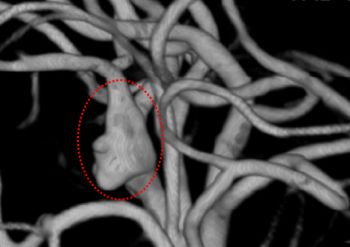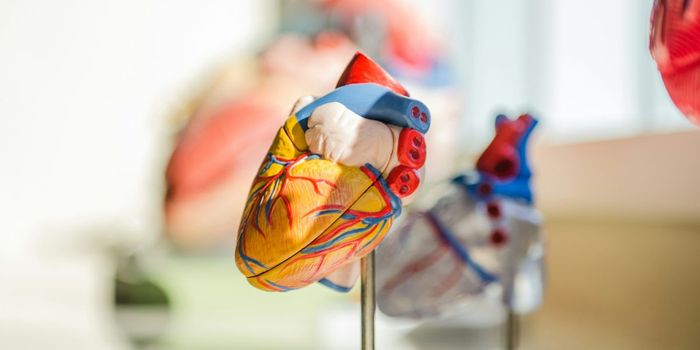Repurposing Cancer Drug for Treating Brain Aneurysms
Brain aneurysms is a result of a bulging blood vessel due to a weakness in the blood vessel wall. When the blood passes through the weakened vessel walls, blood pressure will cause a small area to bulge outwards. These bulges can develop anywhere but most commonly in the abdominal aorta and the brain.
Learn more about aneurysms:
Treating a brain aneurysm is a challenge and involves complex surgery that has been attempted in select cases most notably Game of Thrones actress Emilia Clarke who suffered from two aneurysms while filming the series.
Now, new research points to a critical drug class used in the treatment of cancer patients in its potential to be repurposed for treating brain aneurysms. The class of drug is known as 'Receptor tyrosine kinase inhibitors' and can target the genetic basis of brain aneurysm—which involve mutations in the gene PDGFRB.
"This is an extremely exciting discovery which shows how basic lab-derived observations on a genetic level can move into a clinical setting and start making big changes to public healthcare and treatments,” says Mark O'Driscoll, Professor of Human Molecular Genetics at the Genome Damage and Stability Centre at the University of Sussex.

"Our research focused primarily on understanding the genetic and cellular mechanisms underlying a particular type of aneurysm. By finding a new genetic basis in some patients, we were also able to demonstrate that a known cancer drug could counter this genetic basis in most instances. Understanding the genetics behind diseases like this is crucial in identifying possible treatments and next steps -- and that is exactly what our part in this new research has shown. The lead authors and our collaborators on this paper based in the US, are now working on the next stages to test this drug further."
Drug repurposing is not new to research and many studies have attempted to use FDA-approved drugs for the treatment of other disorders. Other drug repurposing stories have been successful with even dangerous drugs like thalidomide for treating leprosy.
"We are now very close to treating these aneurysm patients with PDGFRB variants with specific receptor tyrosine kinase inhibitors,” says lead author of the study, Dr. Manuel Ferreira of the University Of Washington School Of Medicine.
Findings of the study were published in the American Journal of Human Genetics.
Source: University of Sussex








